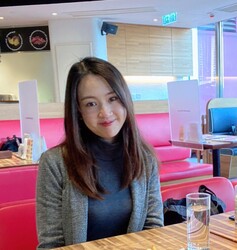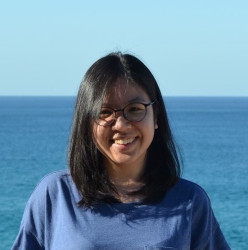Student Sharing - Online Mutual Aid Study Group for HKDSE Candidates

Lo Siu In
Bachelor of Arts and Bachelor of Education in Language Education – English
In the online-support study group project, online sessions were held via Telegram for students to ask about their difficulties. The questions asked would then be kept in a question bank in which students could revisit after the session. Despite the fact that the sessions had to be held online due to COVID-19, the online platform allowed students to raise questions about concepts that they were confused about and problems that they had encountered while studying. Often while answering these questions, my partner and I would have to think of ways to explain the misconceptions clearly as we do not have any teaching materials on hand. Also, most of the students were quite passive and shy, so even after responding to their questions, we did not know if they really understood what we have just said. To tackle the issue, we tried to use diagrams and examples during our explanation and follow up with a question to check their understanding. This not only ensured their understandings, but also encouraged more students to respond to us by answering the follow-up question or raising another question. The experience gave us an insight into providing clear explanations even with the constraints of being online, and engaging students in an online environment. This also gave us an idea of what students commonly find difficult when studying English.
The most common question was how to improve their English for DSE, which is also the most difficult question. Since the project took place only a few months before DSE, instead of suggesting methods that would only be effective in a relatively longer period of time, we discussed the criteria of DSE papers and suggested ways to drill relevant skills. This provided us an insight into the teaching of English learning methods. This is because even when students have been learning English throughout secondary and primary education, some of them may still be uncertain about how to improve their English, and thus become unconfident in the HKDSE. All in all, it was a rewarding experience as it provided us the opportunity to learn about common challenges faced by students before DSE and how to provide support in an online environment.

Wong Bo Huen, Aubrey
Bachelor of Arts and Bachelor of Education in Language Education – English
I joined the Study Group project organised by the Hong Kong Federation of Youth Groups this year because I felt I could use both my past experience as a DSE exam candidate as well as my current subject knowledge as a pre-service English teacher to help current senior secondary students tackle the challenges of preparing for the English DSE examination. I ended up gaining much more. The project is aptly named “Keep Going - Online Mock Exam”, with both tutors and social workers encouraging students to persevere and face their challenges head on, in spite of exam pressures, in spite of the pandemic. The study group being an online messenger did not make teaching and helping these students any less fulfilling. In fact, the biweekly, two-hour long sessions involved deep engagement with students’ questions and worries. Not only were we able to assist with issues related to the English exam papers, but the dedicated time also allowed us to take great care with students’ anxieties about preparing for their examinations.
As a pre-service English teacher, I relished the opportunity to engage with students from all backgrounds, to understand their struggles and worries, to share and rejoice in their little triumphs. Even though students took a while to warm up to us, we took the time to prepare extra materials for their reference and practice each week. Collaboration with other tutors was critical, and it became apparent to me that the response we get from students is directly related to what we give them. We could not see their faces, hear their voices, or know their names, but we could look into their fears and frustrations. Answering questions, choosing what and how to phrase our answers, and compiling study materials were as rewarding for me and my fellow tutors as they were for the students. This study group was far from a strenuous teaching commitment, but it required thoughtfulness and great compassion. Here, I was not a “teacher”; but rather, I became their friend, their peer, and their guide.
